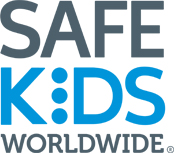You are here
Safe Kids China: Establishing Child Road Safety Programs in China
With more than 1.35 billion residents representing one-fifth of the world’s population, China is a critically important country for road safety. Safe Kids China, established in 2004, has led a number of innovative and far-reaching road safety programs with built-in research components. One example is the Walk This Way program, supported by FedEx, that currently reaches nearly 400,000 students each year in 28 cities in China. Safe Kids China works with local FedEx volunteers to conduct educational activities in schools; in 2013, more than 1,100 FedEx volunteers participated.
To understand the effectiveness of the program, Safe Kids China surveyed 558 students ages 7 to 11 years from Huamu Central Primary School in Shanghai. They also conducted observations around the schools, including pedestrian and driver behaviors, before and after educational and environmental interventions. After the student education, they found a 14 percent decrease in incorrect perceptions of safe crossing practices among second grade students and a 25 percent reduction among fourth grade students. Before the intervention, they found that 69 percent of vehicles were travelling over the speed limit in the school zone; after the intervention, it had fallen to 30 percent.
In the future, Safe Kids China plans to conduct observational research among older students ages 12 and up, examining distraction by mobile devices while walking. “Looking ahead, distraction from mobile technologies is going to be an important issue for young pedestrians and bicyclists in China,” says Monica Cui, executive director of Safe Kids China. “We need to better understand the prevalence of these behaviors so we can develop educational interventions that work.”
Nearly 50,000 babies are born daily in China. It is not uncommon to see babies and toddlers carried on bicycles and motorcycles strapped to parent backs and fronts, whole families wedged on a two-wheeled vehicle. But as cities expand and industrialize, people who never owned cars or drove before are now sharing the roads with two-wheeled vehicles and pedestrians. Children appear to be no safer in cars, as many ride without benefit of car seats or seat belts, as they do on bikes.
China is addressing the issue of children and road safety through coordinated education efforts. The country is geographically massive and densely populated. There is recognition that an injury prevention strategic plan is needed to protect children, whatever the transportation mode, on roadways. Current research in China, much like the U.S. in the beginning stages of their national initiative, shows that few children consistently use any type of restraint in a vehicle. For children under age 1, a commonly held unsafe belief that children are safer in adult arms persists. For children over age 2, the use of restraints is a foreign concept. Current 2013 research from Shantou found that 12 percent of 216 new mothers with cars in the study had never heard of nor seen a child restraint, and 22 percent had heard about but never seen a child restraint.
Much work is needed to make child restraints a staple when preparing for a birth and using it immediately after birth. Safe Kids China is coordinating the training of technicians using the U.S. child passenger safety certification program to address these beliefs. The technician guide and tests are available in Mandarin to accommodate bilingual students. Additionally, a new law in Shanghai, a city with a population of 24 million people, requires child restraints in vehicles for children under age 4. Armed with the passage of the law and coupled with training, in 2014 Safe Kids China participated in two classes enabling 21 child passenger safety technicians to be U.S. certified. The new technicians work in a variety of positions that can build a comprehensive initiative from the ground up. Efforts to invite other key partners, such as police, retailers, manufacturers, researchers and government workers, are ongoing as classes are scheduled and a cadre of subject matter specialists are developed and deployed around the country.







